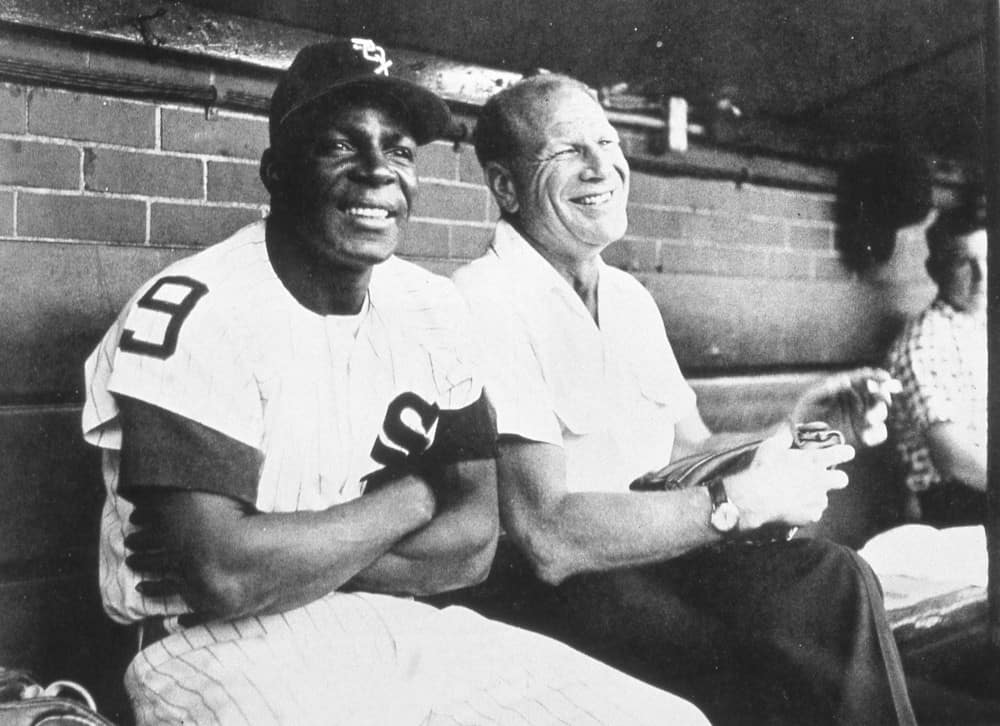With the Sox Machine Podcast entering its semi-dormant offseason state, P.O. Sox continues for those of you kind enough to support Sox Machine on Patreon, and curious enough to throw questions at me. So here we go:
Asinwreck asks:
With the Sox trading international signing slots away wholesale, what are Marco Paddy's job duties these days?
I really don't know what to make of Paddy's overall body of work with the White Sox due to all the noise. The White Sox haven't matriculated an international signing to any Double-A success on his watch, but is that his fault? He had to build the White Sox international program from nothing due to the David Wilder scandal, the Sox traded away his best signing before he played a game for them, they struggle to develop even stateside players, and now the Sox don't seem all that enthused about getting back in the game after getting out of the Luis Robert penalty box.
James Fegan wrote a glowing profile of Paddy back in April, and Kenny Williams and Rick Hahn said Paddy figured prominently in the two riskiest signings in franchise history -- the $68 million for José Abreu, and the $26 million for Luis Robert. Maybe that's why the Sox are content to invest most heavily in Cubans as of late, or maybe Paddy benefits from the two most obvious international investments they could've ever made. The Sox weren't out on the limb by themselves, after all.
Even if the White Sox aren't interested in competing for the top teen talent, Paddy's role will still be needed to direct whatever six-figure bonuses Rick Hahn and Kenny Williams enable him. His knowledge and reporting can factor into trade targets, too. If Paddy deals with a shortage of funds next year, hopefully it's because the White Sox landed some of the top free agent talent.
Along the same lines, Justin asks:
Since the front office is okay trading away all the international signing money and the drafts have yet to yield results, what other ways can the White Sox have depth in place? Or are we just hoping for a lot of rebounds on the farm?
I suppose there are reclamation projects and challenge trades, but those aren't reliable forms of building depth, so the avenues are fairly limited.
I will say if the White Sox are going to trade away their international money, at least they're doing it the same year they focused on prep talent in the draft. The White Sox used their second-, third- and fourth-round picks on high school players, then went out and signed five prep players on the third day for six-figure bonuses. That's by far the most of any Nick Hostetler draft, and it gives the White Sox farm system more athleticism and projectability than it usually has.
They don't add a whole lot to farm system rankings right now. Matthew Thompson and Andrew Dalquist have a combined total of five pro innings under their belt, so you can't put them on any sort timetable. The same can be said for your James Beards, your Logan Glasses and your Chase Krogmen. The White Sox don't have a rich history of turning farm talent into major leaguers like, say, the Atlanta Braves, so they get no boost on reputation alone. That said, if a few of them can turn into productive low-minors players by the end of 2020, along with continued growth from Lenyn Sosa and a healthy year for Bryce Bush, the farm system stands a chance of feeling younger than it usually does.
If none of them find traction, then yes, the White Sox are left to hope that the last year's Birmingham outfield makes the most of its mulligans.
Unrelated but equally bleak, Mark asks:
As someone who’s occupied a niche of the sports blogging universe since the internet stone ages do you have any thoughts about Deadspin’s death knell and the future of online sports media?
Oh, it all sucks. It'd be one thing if Gawker's missteps put Deadspin on a unique track toward dissolution, because then you could hold out hope that the same bunch could reform under a new banner without baggage. But no, the Deadspin revolt is just a more dramatic form of the same story arc -- new owners/private equity taking over a publication, making it worse on purpose, then selling it for a fraction of its value once it wrings out what it can. A sizable portion of people may not have cared for Deadspin's politics and think it's getting what it deserves, but the same thing is happening to Sports Illustrated, which is about as middle-of-the-road as it gets.
The difference with Deadspin, as opposed to 2019 version of SI, is that the writers and their specific points of view were the draw for the site, and it so there's some satisfaction in seeing them attempt to exercise their leverage. The G/O Media guys didn't value what made Deadspin Deadspin, just like Sports Illustrated's new owner didn't value the heft and prestige of that name. This New Yorker column captures the issue.
So why does Maven seem determined to kill it? Even if it hits whatever benchmarks Maven has set for it, the new Sports Illustrated will be unrecognizable. The plan isn’t to reinvest in the kind of reporting and writing that the magazine is famous for—the kind that illuminates the inner workings of sports organizations, or explains developments in strategy and analysis, or explores the lives of athletes, or investigates and exposes abuses of power. The plan is to attract “an intense community of fans”—not of Sports Illustrated but of specific teams—“who come back to the site everyday,” Bill Sornsin, the C.O.O., said in a presentation. “Nobody is actually a fan of ESPN or Sports Illustrated,” he explained. “They’re a fan of the New York Giants, or the Iowa Hawkeyes, or what have you. They’re a fan of their team.”
You're not going to get people to love you if you don't love yourself first. If you purposefully don't want people to love you, that's very easy to accomplish, so here we are.
Blogs big and small have been hurt by plenty -- Google and Facebook siphoning ad revenue, pivoting to video off a cliff, the abandonment of Google Reader and RSS as a readership tool, and the narrowing of the Internet into a handful of companies everybody is angling to serve. It strikes me as no coincidence that podcasts have surged over this time, because there's the same combination of a low barrier to entry and universal, neutral distribution and subscription that blogs used to enjoy. (Companies are trying to establish podcast exclusivity without alienating producers, but it hasn't yet taken hold.)
The hollowing-out of the Web inspires nostalgia for the way the Internet used to be. Every once in a while, something will get retweeted into my timeline that looks like this:
I'd love to think that yearning will eventually result in a blog revival the way millennials and Gen Z have fallen in love with vinyl, but I wouldn't count on anything usurping Instagram Stories unless it's something that resembles Instagram Stories.
This might all sound depressing, but it's also something I've made peace with. I just want to write and talk about the White Sox for and with people who want to read and write and talk about them, and after venturing elsewhere and seeing platforms screw users because they got screwed by other platforms, I think it's best we do it here. If you're behind the Patreon paywall and reading this, thanks for agreeing with me.






